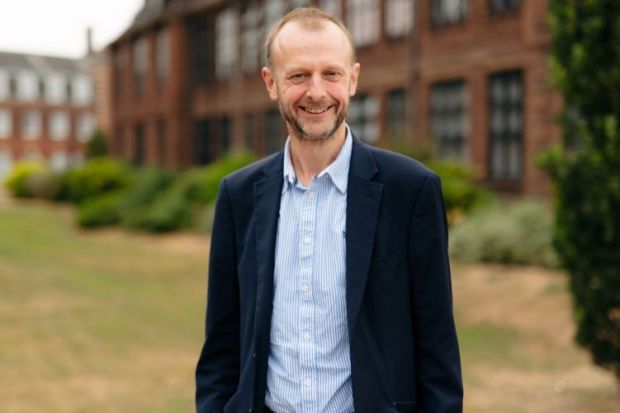The University of Hull’s strategy to prioritise social justice and sustainable development has attracted an earth scientist who thinks universities need to be leaders on those goals to become its new vice-chancellor.
Dave Petley saw his own academic background as an earth scientist specialising in the study of natural disasters in poorer countries as an ideal match for the university’s dual 2030 strategy of environmental sustainability and social justice.
“What has been increasingly clear throughout my career is that natural disasters are also a social justice issue and, essentially, it’s the poor who get affected by them and take the longest to recover from them,” he told Times Higher Education.
“Over the course of my career I’ve been passionate about environmental sustainability and social justice, so when I looked at the new strategy of the University of Hull and saw that they put these two elements so centrally, that really, really appealed to me.”
Environmental sustainability is a challenge Professor Petley takes personally, having lived in an eco-house on a communal biomass boiler during his time as a vice-president at the University of Sheffield.
Hull has set a commitment to be carbon neutral by the date of its centenary in 2027 and is building a set of solar farms.
“That for me is a real institutional commitment to environmental sustainability that I think we should be very proud of,” Professor Petley said.
“There’s an element of this that is just about doing it so that we reduce our own carbon footprint; and an element of it is about using it as a demonstrator for local businesses.”
While vice-president for research and innovation at Sheffield, Professor Petley led the development of a new research strategy and the creation of four new research institutes. He said he believed research was central to combating “two of the greatest challenges that humanity faces”.
Carbon capture – a process that captures carbon dioxide emissions from sources such as coal-fired power plants and either reuses or stores it so it will not enter the atmosphere – is viewed as a key part of limiting global warming to 1.5°C.
But Professor Petley warned that we did not currently have the solutions needed to allow us to be able to meet the “very difficult” obligations set by world leaders.
“It feels to me that there is a massive, technical research challenge around how we are going to achieve these lofty ambitions,” he added.
And he said there were similar issues with social justice, because a big research challenge remained in terms of how to embed core values into the economy.
All universities “need to step up to the plate” on these issues, said Professor Petley.
The university’s Wilberforce Institute is named after Hull’s own William Wilberforce, who led the parliamentary campaign against the slave trade.
The university aimed to help students step up and play their own part, Professor Petley said.
“It is absolutely right for us to work with people who are going to be leaders of the future in getting them to understand the scale of the social and environmental challenges we face, and to be in a position in which they are able to play a greater role in society and can individually contribute. It becomes obvious that universities should be playing a role.”
Register to continue
Why register?
- Registration is free and only takes a moment
- Once registered, you can read 3 articles a month
- Sign up for our newsletter
Subscribe
Or subscribe for unlimited access to:
- Unlimited access to news, views, insights & reviews
- Digital editions
- Digital access to THE’s university and college rankings analysis
Already registered or a current subscriber? Login








